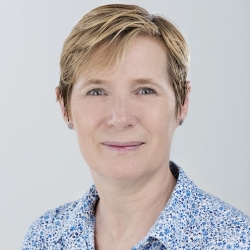I am a self-confessed total enthusiast about online therapy. I have found it transformative, to the extent that I have become an evangelist for its potential and its use right now. I feel so proud to be a member of ACTO's Board of Directors as I believe that having a body dedicated to the ethics, training, and development of online psychotherapy and counselling is vital.
For me, one of the key questions is how we can demonstrate the value and efficacy of online therapy; online therapists and our clients know it works, but how can we show this? From this starting point, I explored how we could use one of the most effective and widely used systems of monitoring psychological well-being, CORE (Clinical Outcomes in Routine Evaluation). These forms have been used in mental health services and research for decades for face-to-face work. How would this work for online therapy? Can we use CORE around online therapy to provide evidence-based research to demonstrate the efficacy of online therapy?
From these initial questions, we developed a pilot between ACTO and CORE to trial the use of cloud-based CORE to monitor our clients in online therapy. I am the Lead for this pilot and am working with five highly experienced therapists to trial the use of CORE around online therapy. The work with our clients ends in September and then we will evaluate how it has worked... so watch this space!
Working online as a therapist has many differences to working in a face-to-face setting. The training I received at the Academy of Online Counselling and Psychotherapy provided the rigour that enabled me to develop my own online private therapy practice, and to ensure that my clients have a secure and confidential bounded space to work online. It also encouraged me to explore the differences between online and face-to-face work, and to begin to discover the huge potential the online world has for psychotherapeutic work.
I have worked with a variety of clients online, who bring a wide range of issues from depression and bereavement to trauma and anxiety; I have found online therapy so effective in supporting clients as well as empowering clients as we construct together their unique online therapy spaces.
My face-to-face training was in Psychodynamic Psychotherapy and I specialised in working with children and Young People, earning a Master's degree with distinction from Birkbeck College, University of London in 2011. Playing in therapy has always been at the heart of my work, and I derive so much from works by Donald Winnicott and Wilfred Bion. I was not sure if my way of working, that is psychodynamically, would work well online as it has the here and now experience at its heart, especially when the work is asynchronous, such as in email therapy. I have been inspired by more recent work in this area by John Suler and Haim Weinberg, and have found that I can indeed work psychodynamically in online settings and in a range of formats. Interestingly, I have found that exploring the here and now, and using symbolism has been surprisingly effective in email therapy, maybe because when we read a text, that is our here and now moment, but at the same time, the process of writing can be so deeply reflective. I have found that the online world really opens up the ability to play and explore in therapy. I have also recently earned my licence in Avatar therapy using ProReal software and wish to trial using this with young people, maybe with CORE as a monitoring system for safeguarding in schools.
I also love teaching and am very excited that I will be working as a tutor at the Academy for Online Counselling and Psychotherapy. I have a background in academic teaching, having worked as an economics lecturer at City University and UCL, London. I have a Masters and PhD in Economics, and my research specialism was in the difficulties of measurement of economies in transition. I also worked as a consultant editor for the Economist Intelligence Unit in the East European department. I guess I have now come around full circle, back to issues of measurement, but this time, our clients' well-being as they transition to improved healthier places.

